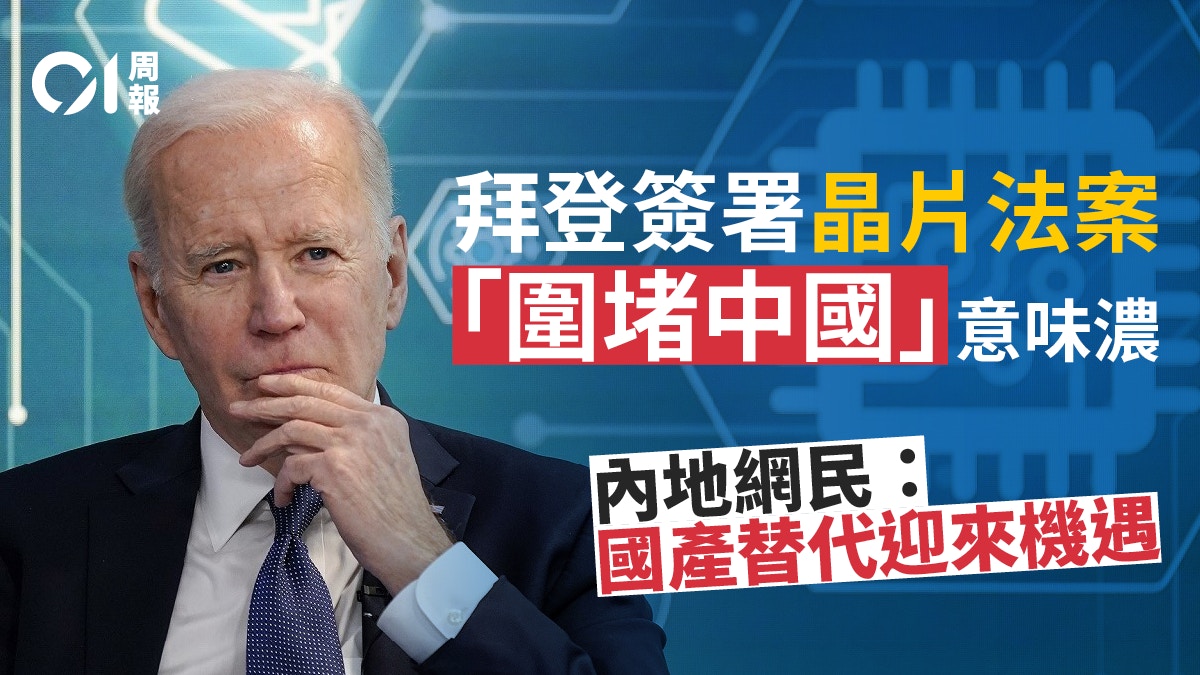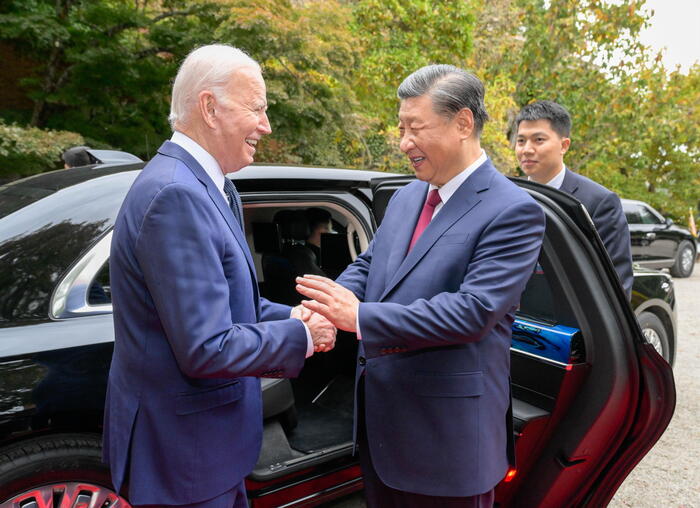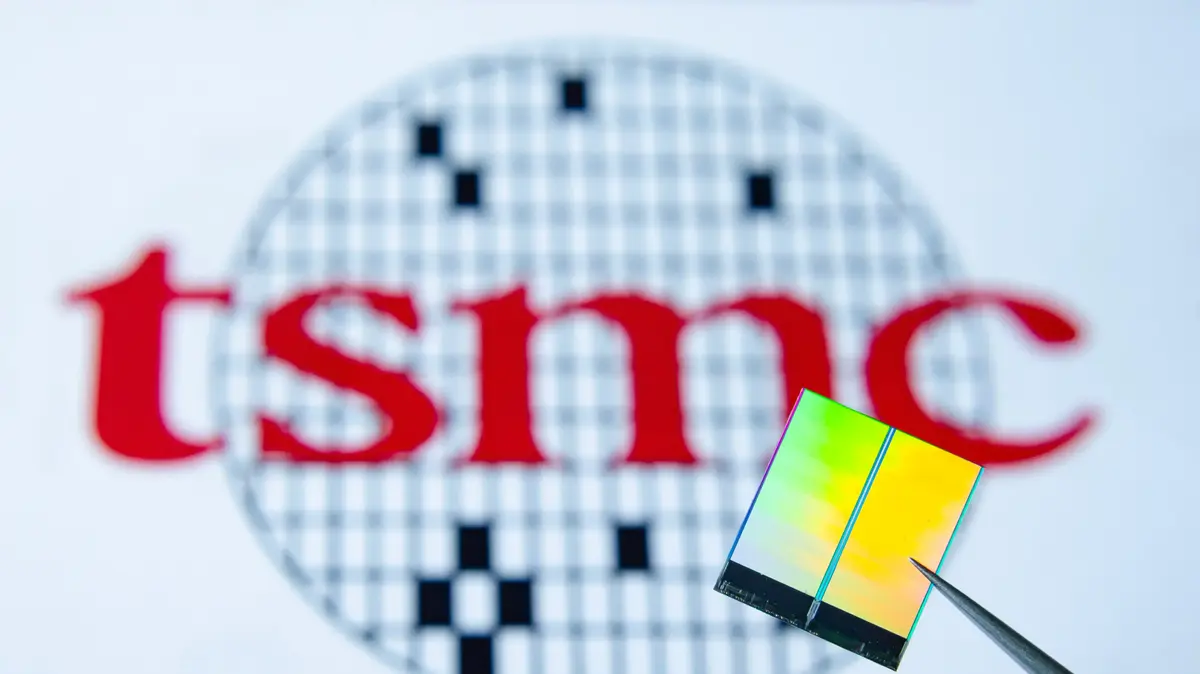U.S. President Joe Biden finally signed into law last Tuesday (August 9) the much-discussed "Chip Act", a huge bill aimed at subsidizing manufacturers to make their own chips in the U.S., while explicitly restricting subsidized semiconductors Enterprises investing in China, coupled with the recent efforts to win over the formation of the "Chip 4 Alliance", obviously want to "contain China" on chips.
The US$280 billion Chips and Science Act was formally signed by Biden last Tuesday after being passed by the Senate at the end of last month.
The $280 billion budget includes $52 billion in subsidies for the semiconductor industry and $24 billion in tax credits for new chip fabs; the bill also authorizes $200 billion over 10 years to advance chip research.
However, because the "Chip Act" contains national security competition provisions, companies receiving federal subsidies are not allowed to expand investment in advanced process chip production in China and other areas of concern, including Russia, Iran, etc., for 10 years, and 28 nanometer (nm) process or above. Unrestricted.
The so-called advanced process is the process technology that can make the circuit smaller , but there is no clear demarcation.
And this bill uses 28nm as the boundary, it can be said that it intends to "comprehend" the production of advanced process chips and completely exclude China from the advanced process market.
On Tuesday, Biden formally signed the $280 billion Chip and Science Act.
(Getty Images)
When Biden spoke on the White House lawn, he made no secret that the plan was aimed at China.
“Unfortunately, we produce zero percent of advanced wafers in the world, and China is trying to catch up with us in producing these high-tech wafers. There is no doubt that China is actively lobbying American businesses against this bill. America must be producing advanced wafers. Leading the world in this regard, this bill will make it happen.”
US$52 billion subsidizes the "cake share boy", and the US "natural son" Intel (Intel) is expected to get the most, with up to US$20 billion, and smaller US companies such as Texas Instruments and Micron can also be affected. benefit.
Intel Chief Executive Pat Gelsinger said the bill may be the "most important industrial policy" in the United States since World War II, aimed at reversing a decline in the U.S. share of global chip manufacturing to 10 percent from 38 percent in 1990.
Micron, headquartered in Idaho, USA, also announced that it will use the "Chip Act" funding and subsidies to start production in the United States between 2025 and 2030, creating 40,000 jobs.
In addition, TSMC's $12 billion 5-nanometer fab in Arizona will also receive grants.
South Korea's Samsung will also receive subsidies, but this is also a double-edged sword.
Because, since 2012, Samsung's investment in China is as high as 25.8 billion US dollars, including the NAND Flash factory in Xi'an, which accounts for 42.3% of Samsung's total NAND Flash production capacity.
If Samsung is restricted by the US and cannot continue to expand its Xi'an plant, it will cause a lot of impact.
The "Chip Act" is, after all, a continuation of the policy. As early as Trump's term, Washington imposed a 25% tariff on Chinese exports of semiconductors in 2018, and later announced a ban on U.S. companies from selling semiconductor electronic parts to Huawei and others. In 2020, Huawei will be restricted from purchasing U.S.-designed and manufactured chips, and chips made with U.S. equipment will not be supplied to Huawei.
Together with the Biden administration in March this year, it proposed to Japan, South Korea and Taiwan to form "Chip 4". It can be said that the United States is trying to "contain" China in various aspects of semiconductor development.
In July this year, it was reported that SMIC has successfully produced 7nm wafers and shipped them.
(file picture)
It is rumored that China has made 7nm chips
Some experts believe that since China's chip production is currently concentrated in the mid-to-low-end field (mainly based on mature processes), the impact is not large, but it may have a great impact on China's advanced process chips in the long run.
As China's leader, SMIC has the ability to produce advanced process chips, but there is still a 6-year gap between the technology and TSMC.
TSMC is the only company currently producing chips below 28nm in mainland China, and its factory in Nanjing produces 16nm wafers (Taiwan regulations restrict TSMC from producing wafers below 14nm in mainland China).
However, with the introduction of the chip bill in the United States, "beneficiary" companies such as TSMC and Intel will not be able to expand advanced chip production in China or build new factories in the future.
In the advanced process chip market, the really important technological watershed is the 7nm process.
Currently, in the global market share of chip production capacity below 7 nanometers, Taiwan ranks first with 78%, followed by South Korea with 12%, China with only 1%, and the United States with zero.
But this pattern is expected to change after the introduction of the US Chip Act...
For details, please read the 330th issue of "Hong Kong 01" Electronic Weekly (August 15, 2022) "
From the Taiwan Strait Crisis to the Chip 4 Quad Alliance China-US Chip War
"









